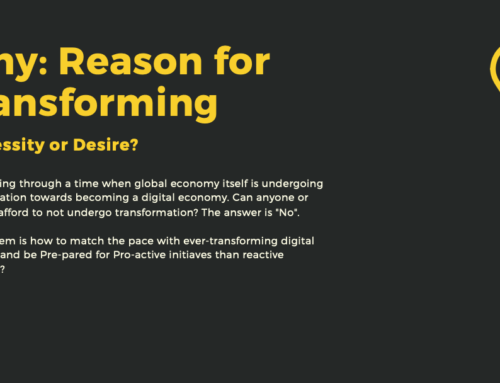
After all is said and written about startup- success, failure, perseverance, learning, stumbling, experience, and everything else– the ultimate truth remains the same i.e. no one starts to end up as a failure. To put it in a different way, not everyone comes with a courage to stand up again and travel the path to entrepreneurship after getting bruised, beaten, and becoming a brickbat example. For many of them, there’s no second chance; even the first chance comes by chance for many in my part of world.
To not try anything may be a sign of rational failure, but to try and fail is the real and actual failure. That doesn’t mean one shouldn’t try, but prepare enough to avoid collision with failure that may be hiding at the next bend. You can’t avoid the bend either!! For start-up and emerging businesses that bend lies not in developing a product but failing to acquire a customer and market enough. And, it’s not just sales!!!!
The challenge gets further complicated by the fact that marketing for startup or emerging businesses isn’t akin to marketing as understood in general parlance. With unvalidated product, untested business model, scarce budget, and limited capability, the usual approach to marketing just seems out of range.
A part of problem also lies in their inability to either define success or tag it to a peer that’s already making rounds. The key lies in defining your own parameters to success and mapping that with appropriate marketing objective.
Bottom line: Traction is tough to build and achieve.
The question is, what should be done to not let the urgency of sales drown the importance of marketing? Here’s a piece of advice:
- Understand your product’s perceived value and gauge whether it outweighs the associated cost. It’s much more than just the product feature. You should package the values in a way to resonate with your customers.
- Don’t just write or get written any document that self-proclaims itself as a marketing plan or strategy. Strategy lies in being unique and uniqueness lies in knowing what shouldn’t be covered as a part of one such strategy. (Food for thought: Ask yourself what should come first, planning or strategy?)
- Marketing is about unfolding your own myth. With limited resource and budget, the best way to achieve that feat is to listen loud, speak silently. Listen to know where lies the requirement or opportunity, followed with placing yourself in front of the same and speaking the fitness of values silently.
- Plan ahead to be able to be creative in any forthcoming context.
- Don’t postpone your marketing for tomorrow in anticipation of coming across a magical genie. Procrastination could become contagious and may infect other team members as well. That’s where you need an expert marketer more than anything else to keep everyone on anvil and agile.
- Leverage upon an existing trend to get optimum ROI on marketing.
Marketing is a sum total of motley and diverse activities, making above more complex and cumbersome for any company to achieve. The marketing span could get as broad as one could think, like branding, positioning, pricing, content writing, messaging, go-to-market, to name a few.
The question is, how to imbibe and utilize marketing to fullest and in best interest of your organization?
The answer lies in Virtual Marketing Team: Another way to put this is to outsource your marketing function to agencies who offer such service. You would be having a team of expert marketers working for you in most cost-efficient manner. Here’s a link for anyone interested in Marketing Process Outsourcing.
Need discussion? Contact Us







Leave A Comment